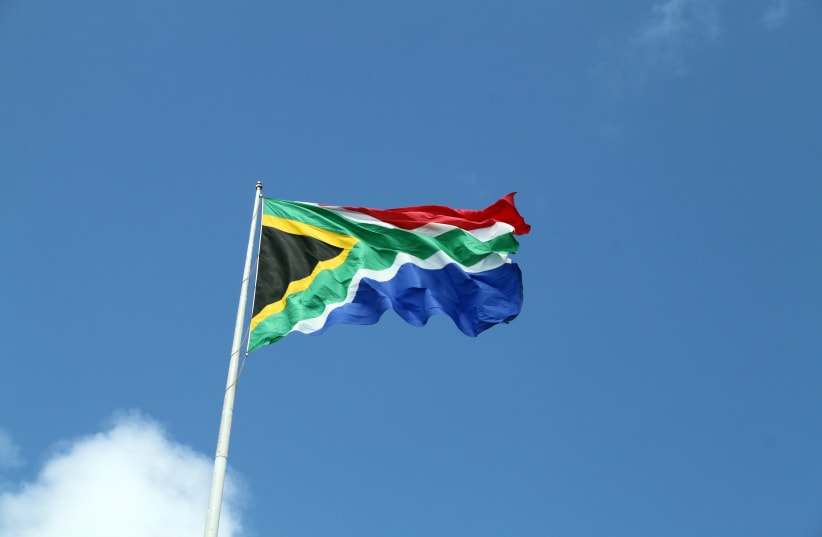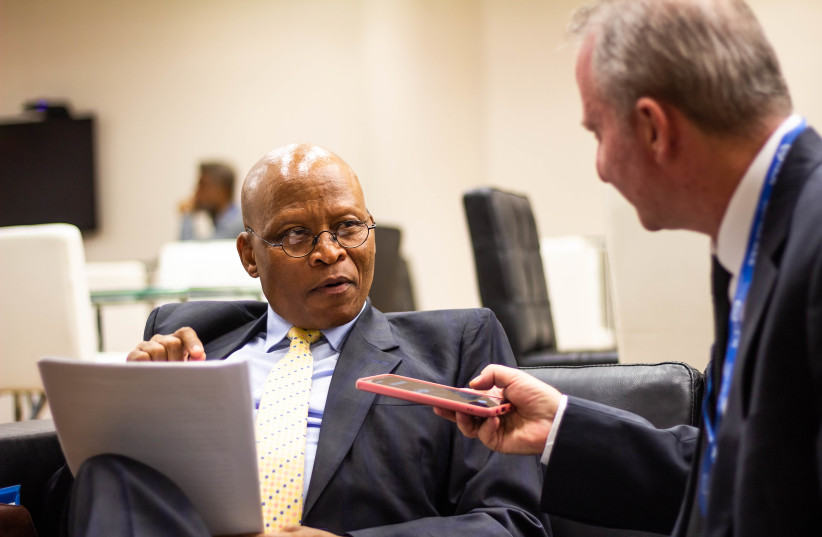South Africa’s former chief justice, Mogoeng Mogoeng, said in an interview with The Jerusalem Post last week that he believes that his country and Israel should resume full diplomatic relations soon.
“Not only our country but our continent as well, Africa, have a critical role to play in facilitating healthy relations between South Africa and Israel,” he said. “I am confident that with the prayers that are going on – there is a team that holds prayers for the peace of Jerusalem every Saturday back home – at one point, and I believe not far from today, that will become a practical reality.”
“I am confident that with the prayers that are going on – there is a team that holds prayers for the peace of Jerusalem every Saturday back home – at one point, and I believe not far from today, that will become a practical reality.”
Mogoeng Mogoeng
Although Mogoeng stressed he did not speak for the South African government, he revealed on September 15 in an address to the Institute of Government Auditors in Pretoria that he would be a candidate for the presidency of South Africa. “I know that I’m called to be president, but I don’t know when or how,” he said in response to a question from the audience.
South Africa, Israel and the Palestinians
Mogoeng, a devout Christian, is a strong supporter of Israel, for which the International Christian Embassy Jerusalem presented him with its annual Nehemia Award on Wednesday. South Africa’s ANC government, however, traditionally backs the Palestinians. Pretoria recalled its ambassador to Israel in 2018 following violence along the Israel-Gaza border, and announced a year later that it had officially downgraded its embassy in Ramat Gan to a liaison office.
In July, South Africa’s Minister of International Relations and Cooperation Naledi Pandor said that Israel should be designated an “apartheid state,” and called on the UN General Assembly to establish a committee to probe whether it meets the criteria for that designation. Wearing a Palestinian keffiyeh, Pandor told a Pretoria meeting of Palestinian heads of mission in Africa: “For many South Africans, the narrative of the Palestinian people’s struggle does evoke experiences of our own history of racial segregation and oppression.”
South Africa’s Chief Rabbi Warren Goldstein condemned Pandor’s comments as “factually, politically, morally repugnant... a defamation of the Jewish state and an insult to the victims of apartheid.”
Despite the historic relationship between the African National Congress and the PLO, as well as the South African government’s identification with the Palestinian people, its decision not to dispatch an envoy to Israel for the past five years does not help anyone. If South Africa is to play a positive role in this region, it must engage with both parties.
Perhaps the South African government headed by President Cyril Ramaphosa should be reminded of the stance taken by Nelson Mandela, the leader credited with ending apartheid. Although Mandela opposed what he viewed as Israel’s “occupation” of Palestinian territories, he supported the Jewish state’s right to exist in secure borders, declaring during his visit to Jerusalem in 1999: “I cannot conceive of Israel withdrawing [from territory] if Arab states do not recognize Israel, within secure borders.”
Ramaphosa, who served as secretary-general to Mandela during the latter’s historic post-apartheid presidency, has been in office since 2018 and is considered a good friend of the country’s small Jewish community, whose numbers have dropped to under 50,000.
In January, he smiled broadly as he accepted the credentials of Israel’s new ambassador, Eliav Belotserkovsky, and shook his hand warmly. “We believe there’s tremendous potential in us working together,” the ambassador told him. “Together, we can share dreams and together we can fulfill them.... There’s so much we can do together in the future in science and technology, education and training, food security and climate change.”
Rowan Polovin, national chairman of the South African Zionist Federation, pointed out at the time that Israel has much to offer South Africa in terms of cutting-edge technology and innovation related to its current challenges regarding water, electricity and renewable energy.
He argued that South Africa is in a unique position to facilitate positive improvements for Palestinians as well as bring them back to the peace table. “South Africa ought to place itself in the center of peaceful and productive Israeli-Palestinian relations, and not at the periphery where it is unable to be an effective mediator,” he said.
We support Polovin’s appeal and call on President Ramaphosa to appoint a new ambassador to Israel – the sooner the better for all parties.

